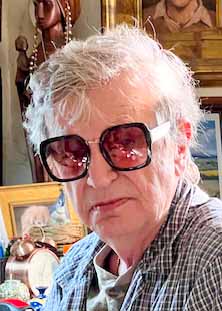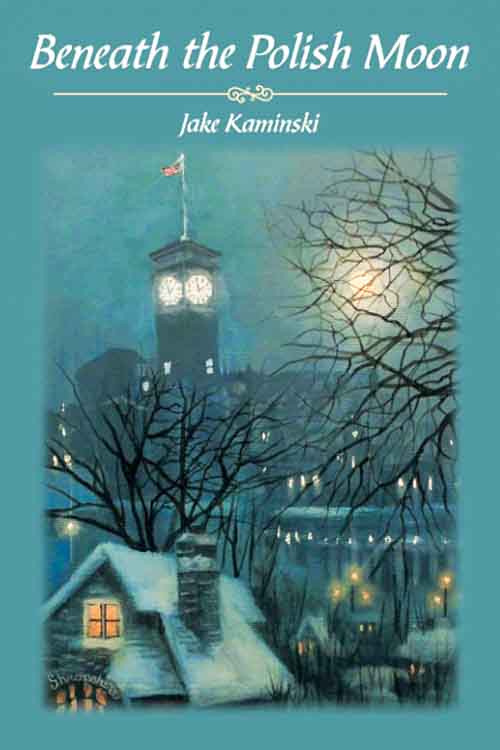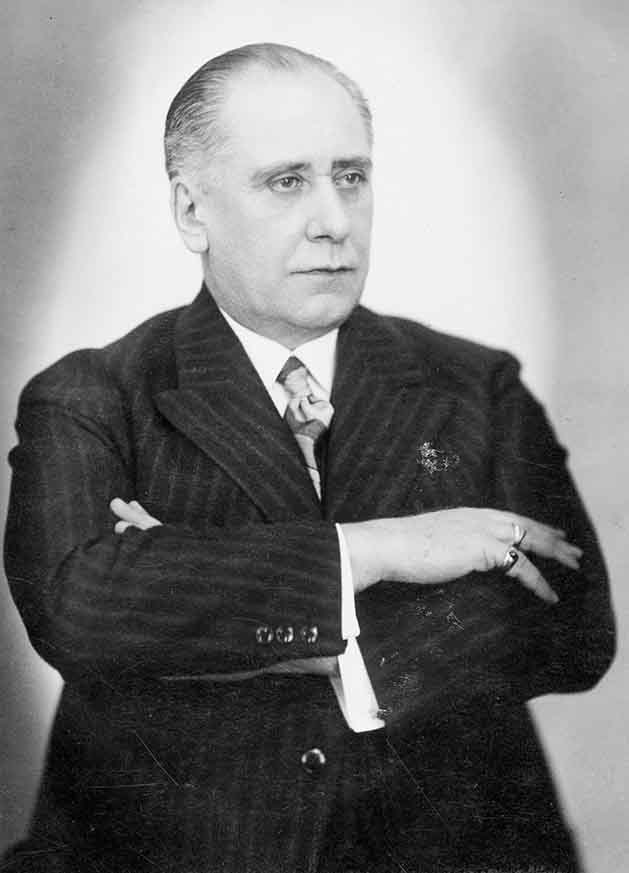65 years have passed since the end of World War II. The historical cataclysm, caused by the invasion of Poland by Germany and Russia, destroyed our country not only economically, but also burdened us with a system that was alien and hostile to the nation for many years.
The war period caused irreparable cultural losses. Old, historic buildings, palaces, libraries, and collections were destroyed in the flames of Polish cities on fire. The occupant took away a number of masterpieces of art by Renaissance masters, including "Portrait of a young man" by Raphael, the altar of Wit Stwosz in Krakow; the Grunwald Monument funded by Paderewski was destroyed; the Raperswil collections brought to Poland fell prey to the fire.
People were dying. Gray, nameless soldiers, civilians, as well as those who represented science and culture. In those days, when it seemed that night had fallen over Poland, against the orders of the occupant, against terror and wild repression, literary, satirical and informational magazines appeared. Printed in underground publishing houses, copied, or typed, they found readers. Many publishers paid for the printing of these magazines with death. But even these draconian sentences did not stop the development of the Polish underground press. At the same time, a secret university started operating, educating those who obtained their matriculation certificates in June 1939. Warsaw, seemingly subdued, thrown to its knees, was preparing for the fight. The famous Gray Ranks (Szare Szeregi), code name of the Polish Scouting Association, they became part of the Home Army and the actual defenders of the city during the uprising. The youngest members of this organization were 15 years old, creating the “Zawisza” rung. The elderly, aged 16 to 18, were included in the "Battle Falcons". Members over 18 years old formed the Assault Groups. After the reorganization of the troops, "Zośka" and "Parasol" battalions were formed, divided into companies. The most famous, "Zośka", took the name from the pseudonym of his heroic commander - Tadeusz Zawadzki.

Tadeusz Zawadzki "Zośka" (Source: Twitter)
Tadeusz Zawadzki was born on January 21, 1921. He graduated, like Krzysztof Kamil Baczyński, from the Stefan Batory gymnasium in Warsaw and an underground cadet school. He was the commander of the Warsaw assault groups. He took part in many combat actions. He died during fights with the Germans in the village of Sieczychy near Wyszków.
Szare Szeregi (Gray Ranks) ran the Agricola cadet school in Warsaw and published their own magazines: Źródło (Source), Dęby (Oaks), Drogowskaz (Roadsign), Pismo Młodych (Youth Journal), and Brzask (The Dawn). The Gray Ranks, which played such an important role in the uprising, consisted mainly of children and young people, born mostly around 1920. For example, let us give just a few names of the fallen soldiers of the "Zośka" battalion:
- Stefan Woliński - Corporal Black, died on August 30 at Zakroczymska Street, he was 16.
- Juliusz Rubini - platoon leader Piotr, died on August 5, aged 20.
- Janina Plebańska - a liaison officer Jola, died on August 30 at the age of 20.
Young people fought for their city, all the while, behind the Vistula River, the "liberating Soviet army" stood idly and watched the death of the city.
Warsaw shook off the rubble. This great model of Canaletto, as the insurgent poet Zbigniew Chałko called her in his poem, is currently one of the most beautiful Polish cities. But the death of this generation that perished behind its walls is clearly felt in the post-war history of our homeland.
One of the editors of the underground literary magazine Sztuka i Naród (Art and the Nation) - Andrzej Trzebiński, a student of the eminent Polish philologist Adamczewski, wrote, realizing that the death of young people would be the death of an entire generation:
History will engulf us. Young boys in their twenties. We will not be the Mochnackis, Mickiewiczs, and Norwids of our era. We could be Rimbauds. We understood ourselves well, very well. You thought of yourself as a historical figure. Me too. We were not destined specifically for history, no, after all, our gesture was supposed to arise naturally, simply, like a shadow of our actions.
Andrzej Trzebiński, a promising excellent intellectual, wrote poems, was the author of a number of excellent essays, reviews and a drama To Raise a Rose. Arrested by accident, died in an execution on November 12, 1943.
Death came to him — wrote Zdzisław Jastrzębski — as he expected, in an autumn full of charm, a creative autumn that was bearing fruit of his works.
And you have to stand above everything. Above all love. That turbulent, derailed, painful, but rich, vibrant youth. And not to be a poet anymore. Must not. — Die.
Third autumn – death. Just do it wisely, very wisely. Everything may still be alive – but I know, and it is terrible, that freedom is a chance for others, the day of freedom cannot find me alive... Red and yellow. Red and young lips with yellow hair. The eternal colors of autumn.
This is what Andrzej Trzebiński wrote just before his death, as if he had a visionary sense of the destruction of these young talents, of this unusually original young literature, which flourished at the most tragic time for the nation. How different our literature could have looked today if Trzebiński's generation had not died out, or had not fled the country. I will mention here only Zbigniew Chałka, a poet, translator, prose writer, and political émigré, from the Columbus generation, who died in the spring of 1994, just before the 50th anniversary of the Warsaw Uprising, whose volumes, in my opinion, are the most beautiful poems published in exile; or Zbigniew Jasiński, and those who gave up their work or had been absent from literary life on the Vistula River for the last 50 years.
After many years, the fallen were "rehabilitated" in communist Poland, and their works began to be printed. The Song of Fire by Krzysztof Kamil Baczyński was the first to appear. However, many young people who died in the uprising were doomed to be forgotten for a long time. Leon Zdzisław Stroiński, a student of a secret university, author of the book of poems Okno (Window) — under the pseudonym of Marek Chmura — a member of the literary group "Sztuka i Naród" (Art and the Nation), similarly to Baczyński attended a secret cadet course. He died together with his dear friend Tadeusz Gajcy and other insurgents in the ruins of the house at 3 Przejazd Street, which they defended. The entire insurgent facility died then...
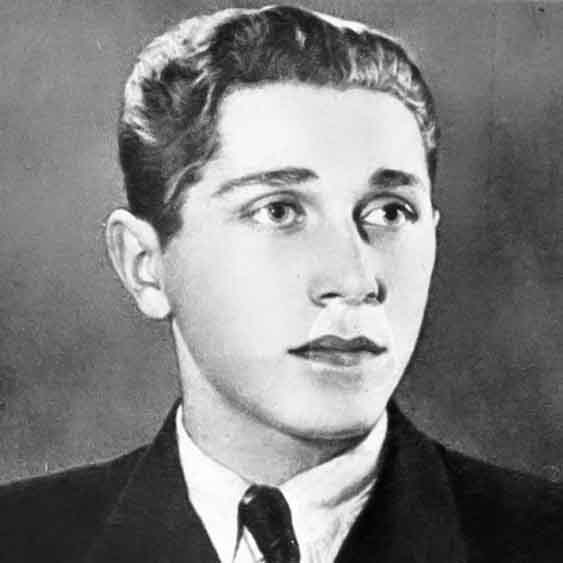
Tadeusz Gajcy (Source: dzieje.pl)
During the greatest Nazi terror, Tadeusz Stefan Gajcy tried to translate German poetry and wrote poems about sunny Ithaca and the bard Homer. In the first days of the war — as a 17-year-old boy — he left Warsaw and, following the summons of Colonel Umiastowski, he reported to each encountered unit with a request to join the army. In the minds of these young boys there was an obligation to defend their homeland. They fulfilled it on the barricades of Warsaw, which they often built with their own bodies. On the sixteenth day of the uprising, the poet Tadeusz Stefan Gajcy died as a soldier. There are several dozen poems left after him, which ensured his name in the history of Polish literature.
Wacław Bojarski, born in 1921, a student of the secret University of Warsaw, died on June 5, 1943, as a result of injuries sustained during the action of laying a wreath at the Copernicus monument. He was the editor of Sztuka i Naród (Art and the Nation). There, he also received an award for the poem "Ranny Różą" (Injured with a Rose). He was also the author of popular military songs and short stories.
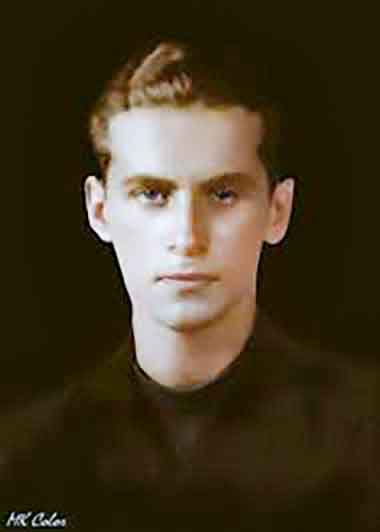
Krzysztof Kamil Baczyński (Source: Facebook)
On the fourth day of the Warsaw Uprising, Krzysztof Kamil Baczyński, today considered one of the most outstanding poets of that period, died in Teatralny Square. He left behind an impressive legacy, so that it is hard to believe that he died at the age of only 23. The popularity of this poet and the magic of his poetry is evidenced by the fact that many émigré magazines often publish his works. Perhaps it was not only the poetry and the poet's tragic death that influenced the minds of his contemporaries: Baczyński's life is a peculiar mystery — an example of patriotism and looking at earlier inspirations. For Krzysztof Kamil, this inspiration could be the poet Mieczysław Romanowski, who died from a Moscow bullet in the January Uprising (1863).
People are gone — their works remain. They are now being carefully published as testimony to those gloomy, tragic days. Perhaps the same fate will one day meet those who exposed themselves to persecution in free Poland, copying their works on a duplicator, who did not yield to censorship. For the time being, we do not observe this phenomenon, although we have a supposedly free Poland. On the contrary — those who once served a hostile ideology in the country, today publish in exile, or work in Polish-American periodicals in prominent positions. The conscience of Poles has dwarfed: hardly anyone is outraged or disgusted. But also these people will be swept away by the wind of history when the nation puts the last dot to the "i", when it comes to the true reckoning of the nation's conscience.
Those boys from the August alleys, full of blood, fire and death, died for their free country, because none of them remembered the invader anymore. They left a will, a soldier's order, which is so clearly depicted in Tadeusz Stefan Gajcy's poem:
With the ivy of voices from under the ruins and decay we climb over the roofs at night and sleep, you, Warsaw, who appears in our dreams while humming our mourning train in September. Listen to these voices, for you were happily saved in a tragic need, that you might break your daily bread more justly and live better for them — and for yourself...
And Krzysztof Kamil Baczyński summed up the entire war effort of his generation in simple words, far from pathos:
We will finally give God our hands, burnt by the antichrist's wing, and he will understand that this youth in this horror was pure.
The poetry of those years and the history of that generation have already been elaborated upon many times. Two anthologies by Jan Szczawiej, simply Benedictine works, saved many works written during the war from oblivion. The book Genealogia ocalonych (The Genealogy of the Survivors) has been published — in several editions — reviving the memory of the fallen soldiers of poets, and recreating the aura of those days. But the most touching anthology of poetry is a modest volume, published by the Office of Poets and Painters in exile in England in 1952, entitled Poems and songs of the Warsaw Uprising. This anthology was prepared by Andrzej Pomian ("Dowmunt"), the spread was made by Krystyna Bednarczykowa and a voluntary former Home Army soldier, Leszek Szkaradziński. In the introduction, Andrzej Pomian writes:
In the unfortunate emigration chaos, one can lose faith in the Polish nation. It is enough then to recall the Uprising, the superhuman strength of the enduring Warsaw, the devotion without borders, and the unity, to completely regain this faith. For there must be some seed of greatness sown in a nation that can so express its own and, at the same time human, truth.
Let us hope that the Poland dreamed by Tadeusz Gajcy will come — where daily bread will be shared fairly and people will live better for themselves, for us, and for those who have passed away...
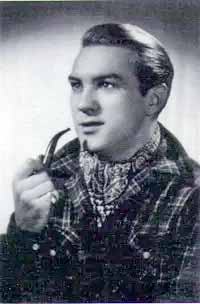
Zbigniew Chałko (Source: polishnews)
And one more historical contribution, closer to us in time, from the Chicago area. Again, the roses that had once turned to ashes in Warsaw, bloomed. It was an author's evening by Zbigniew Chałko, organized by the Club of Varsovians in Chicago. Defender of the Old Town, a boy who at that time fought under the command of Colonel Rog-Błaszczak, read his poems in a city that was so distant from Warsaw, though apparently the second largest Polish city by population. At the end of the evening, prof. Tymon Terlecki presented the poet with a gift in the form of the CD "Odeszli z Różą w sercu" (They have Passed Away with a Rose in Their Hearts). Recitations of works by the poets of the fighting Warsaw were recorded on this album.
Zbigniew Chałko died in exile in Chicago. He joined those who found death in the fire of the burning city. This fire burned in the heart of our poet for many years of emigration... and it did not go out. It remained in his poems.



